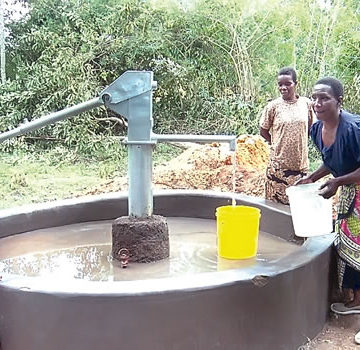Water insecurity has been a huge problem in Nigeria, with millions of people lacking access to clean, safe drinking water. In fact, as the United Nations Development Programme (UNDP) reports it, lack of clean and safe costs African children about 443 million school days to water related water-related illness, including that thousands of millions of Nigeria children are not able to have access to education due to water scarcity, per report from the UNDP Human Development Report 2006, Beyond Scarcity: Power, poverty and the global water. “Water insecurity contributes to illiteracy and cycle of poverty. Lack of access to clean water also costs Nigerian children and women in terms of education, health, economy and personal development. Lack of education keeps children from getting out of poverty. Lack of water deprives children from education,” Paul Darilek wrote it in an article for The Water Project, www.TheWaterProject.org.
These issues however, a pressing challenge is staring Nigeria in the face and that is climate change induced water insecurity, which analysts are afraid could lead to rising hunger, conflict and death in the country.
READ ALSO: Global warming or climate change?
“Water conflicts are inevitable in Nigeria if we continue to do nothing to prevent them from occurring. The country’s finite freshwater resources cannot continue indefinitely to support the escalating demands if drastic measures are not put in place to properly manage it. Water-related conflicts in Nigeria will give rise to food scarcity and regional instability,” Rhoda Gusikit and Uriah Lar of the Department of Geology and Mining, University of Jos, submitted in a paper, Water Scarcity And The Impending Water-Related Conflicts In Nigeria: A Reappraisal, published by the Journal of Environmental Science, Toxicology and Food Technology.
According to them, “a shortage of water resources could spell increased conflicts in the future. The conflict can be caused by competition for increasingly scarce resource. Conflicts associated with water scarcity are food scarcity and regional instability.” Water scarcity, the FOA says, is one of the most urgent food security issues facing many developing countries in the world, especially countries in Africa as freshwater availability is expected to drop by 50 per cent by the year 2050.”
This portends a big problem for Nigeria, experts say, as surface and groundwater responsible for 80 per cent of the country’s agriculture is depleting thanks to climate change.
“Climatic changes already have varying, mostly adverse effects on agriculture and, therefore, food security. Higher temperatures result in decreased agricultural productivity and production, high evaporation rates and reduced soil moisture, lowering of the groundwater table and shrinking of surface water.
“Heat stress reduces human labour use on farms, lowers labour productivity and leads to rapid deterioration and wastage of farm produce,” Chinedum Nwajiuba, Professor of Agricultural Economics at the Federal University Ndufu-Alike, Ikwo, Ebonyi State, said in a published report, Nigeria’s Agriculture and Food Security Challenges.







